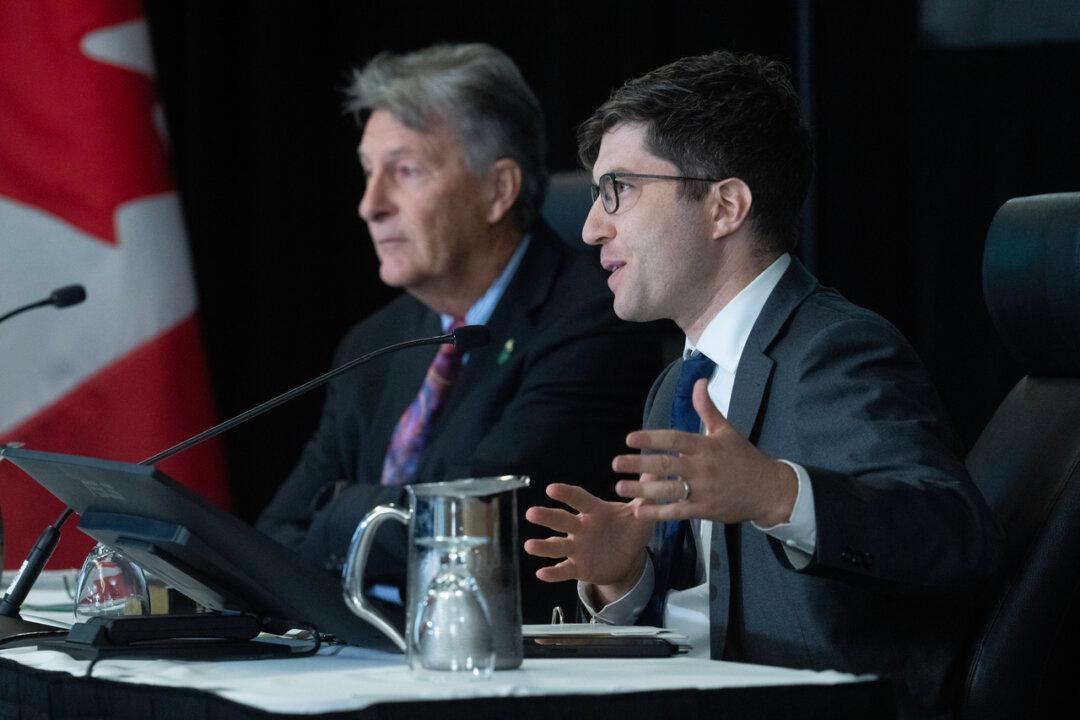Two MPs described for the Foreign Interference Commission how they were targeted by Chinese hackers in 2021 because of their work with international democratic legislators against Beijing’s human rights abuses.
Liberal MP John McKay and Conservative MP Garnett Genuis testified at the inquiry on Sept. 17 that the Chinese cyberattack was aimed at 18 Canadians on the Inter-Parliamentary Alliance on China (IPAC).





